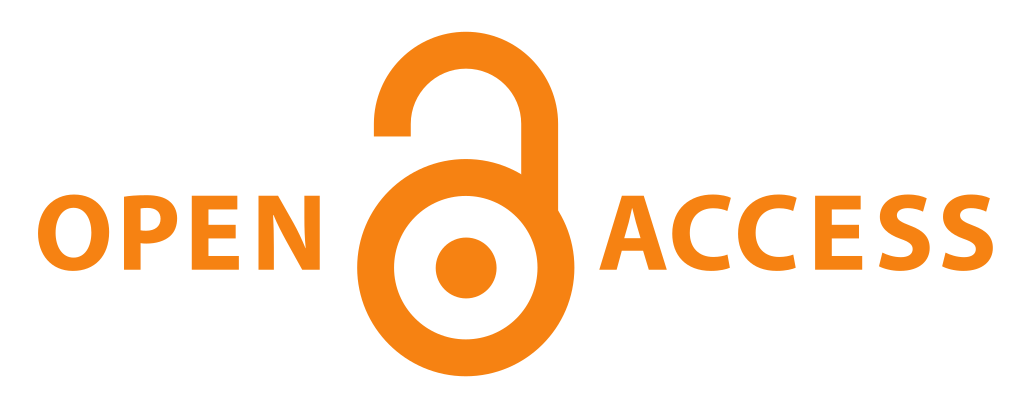Intellectual Capital Management and Fulfillment of Strategic Planning Goals: Analysis in Educational Institutions Non-Governmental in Choluteca, Honduras
Keywords:
intellectual capital, strategic planning, intangible capital, executive management, nongovernmentalAbstract
This article addresses the issue related to the management of intellectual capital and fulfillment of strategic planning goals, taking as the emphasis the neoclassical administrative theory. The methodological approach implemented in this research was the mixed method, since quantitative and qualitative data was obtained and analyzed through a questionnaire, which was administered to 121 teachers from nongovernmental institutes of Choluteca, Honduras, record sheets on proposed and achieved goals in eight different schools and qualitative data through interviews and focus groups. This research sought to verify a positive correlation to prove that the better management of intellectual capital, the greater the fulfillment of strategic planning goals; the results were analyzed to verify association and correlation between variables and level of significance. In consequence, the results permitted to describe that the conditions of strategic planning can be measured from the perspective of the management of intellectual capital, since the success of the strategic plan does not lie in the "quality" to prepare it, but in the capacity of the executive team to manage it. It was demonstrated through the Pearson's coefficient, statistical analysis that the management of intellectual capital explains 83.4% of the variance of the fulfillment of the strategic planning goals.
References
Archibold, W., y Escobar, A. (2015). Capital Intelectual y Gestión del Conocimiento en las Contralorías Territoriales del Departamento del Atlántico. Dimensión Empresarial, 13(1), 133-146. https://doi.org/10.15665/rde.v13i1.342
Banco Finandina. (2019). Planificación estratégica 7 razones comunes de la Planeación Estratégica como Evitarlos. https://www.bancofinandina.com/finanblog/noticias/2019/05/03/errores-comunes-en-la-planeacion-estrategica-y-como-evitarlos
Diaz, D. (2019). La Planeación estratégica como Herramienta para Diseñar Proyectos Transversales en Educación y su Impacto en la Evaluación. Universidad Autónoma de Tlaxcala, Tlaxcala. https://posgradoeducacionuatx.org/pdf2018/A097.pdf
Fernández Hurtado, S. R., Martínez Martínez, L. A., Ngono Fouda, R. A. (2019). Barreras que dificultan la Planeación Estratégica en las Organizaciones. Tendencias, 20(1), 254-279. https://doi.org/10.22267/rtend.192001.108
Hernández Castro, G., y Fernández Jinesta, J. (2018). La planificación estratégica e indicadores de calidad educativa. Revista Nacional de Administración, 9(1), 69-86. https://doi.org/10.22458/rna.v9i1.2103
Hernández Sampieri, R., y Mendoza Torres, C. P. (2018). Metodología de investigación, Las rutas cuantitativa, cualitativa y mixta. Mc Graw Hillz.
Gutiérrez Olvera, S. (2020). Gestión del capital estructural organizativo en instituciones educativas: caso del CUValles, Jalisco. Revista Iberoamérica para la investigación y El Desarrollo Educativo, 10(20), https://doi.org/10.23913/ride.v10i20.613
Ministerio de Educación de Perú. (2017). Guía para la Elaboración de Proyecto Educativo Institucional y del Plan de Trabajo de las Instituciones Educativas de Educación Básica. https://directivos.minedu.gob.pe/wp-content/uploads/2019/10/Guía-PEI-PAT.pdf
Pardo Cueva, M., Armas Herrera, R., y Chamba Rueda, L. M. (2017). Valoración del Capital Intelectual y su Impacto en la Rentabilidad Financieras en Empresas del Sector Industrial. Revista Publicando, 4(13), 193-206. https://revistapublicando.org/revista/index.php/crv/article/view/785/pdf_569
Quiroa, M. (2021). Escuela Neoclásica de la Administración. https://economipedia.com/definiciones/escuelas-de-administracion.html
Ramírez Gálvez, J. R. (2018). La planeación estratégica y la calidad docente en la Universidad, Torreón Universitario. Revista Torreón Universitario, 7(19), 6.17. https://doi.org/10.5377/torreon.v7i19.7906
Ramón Poma, G. M., y Hinojosa Cruz, A. (2020). Capital intelectual y sus dimensiones: Una revisión de literatura. http://www.web.facpya.uanl.mx/vinculategica/Vinculategica6_1/49%20RAMON_HINOJOSA.pdf
Romero Robles, P. (2016). La planificación estratégica y su influencia en la calidad de gestión educativa de la Universidad Técnica de Babahoyo. Journal of Science and Research: Revista Ciencia e Investigación, 1(2), 20-22. https://dialnet.unirioja.es/servlet/articulo?codigo=6118751
Villegas González, E., Hernández Calzada, M. A., y Salazar Hernández, B.C. (2017). La Medición del Capital Intelectual y su Impacto en el Rendimiento Financiero en Empresas del Sector Industrial de México. Contaduria y Finanzas, 62(1), 184-206. https://doi.org/10.1016/j.cya.2016.10.002
Downloads
Published
How to Cite
Issue
Section
License
Copyright (c) 2022 Paradigma: Revista de Investigación Educativa

This work is licensed under a Creative Commons Attribution-NonCommercial-NoDerivatives 4.0 International License.








